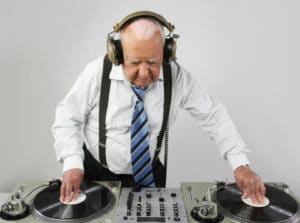
Today, scientists around the world devote research attention to assisting patients suffering from dementia. Conditions such as Alzheimer’s Disease frequently create challenges for caregivers. Individuals suffering from senior dementia often appear to spend time dwelling on the past; they may gradually lose cognitive abilities and daily living skills.
A.G. Rhodes furnishes care for patients (including short-term senior care). We maintain a strong interest in monitoring recent findings about ways to enhance the quality of daily life for the elderly. The Alzheimer’s Music Project urges caregivers to consider providing music therapy to assist people suffering from Alzheimer’s Disease. This novel approach may allow a patient to reconnect on an emotional level with happy memories.
Music as a Source of Joy
For centuries, human beings have celebrated the power of music to uplift and inspire. Listening to a favorite tune helps some people change their emotional state; the pleasure of hearing sounds stimulates brain activity. For healthy individuals, music often serves as a source of entertainment or relaxation.
So perhaps no one should find it surprising that music therapy apparently affects the moods of some patients afflicted with Alzheimer’s Disease. A song may allow an individual to recall specific events associated with it. Musical numbers may offer a way for some elderly people with dementia to enjoy memories associated with pleasant events and beloved faces.
An Inexpensive Way to Enhance Daily Life
While medications sometimes cause unexpected or unwelcome side effects, listening to music produces no known adverse impacts. For seniors who enjoy hearing a favorite tune, this activity may offer a welcome diversion. Some caregivers believe it greatly benefits elderly patients suffering from Alzheimer’s or other diseases which impair brain functioning.
Music therapy offers other advantages in care settings, as well. Enabling patients to listen to music does not require a significant expenditure. Hearing certain tunes may enable some patients to maintain a happier emotional state. Additionally, this process may help stimulate brain activity in areas of the brain involved in auditory and emotional functions.
A Cost-Effective Idea
For all these reasons, caregivers responsible for assisting seniors with dementia may find music therapy beneficial as a way to improve a patient’s daily quality of life. This approach does not require a significant commitment of time and resources. Consider using music to enhance caregiving settings!

